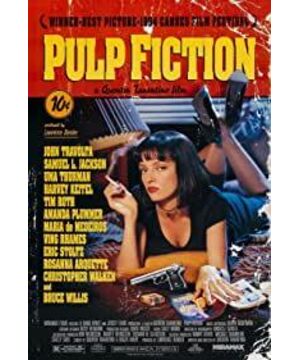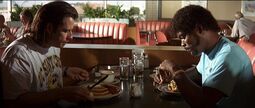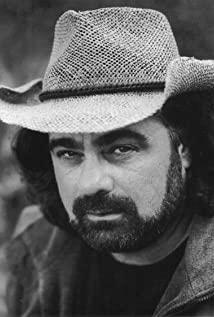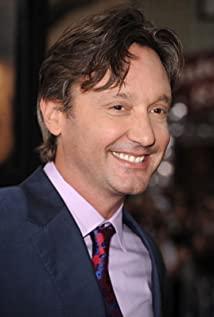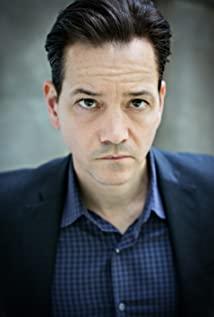Recently, I have been watching black humor topics, and my works include classic black humor movies such as "Pulp Fiction", "Two Smoking Guns", "The Killer Has No Vacation", "Crazy Stone", and almost all the films of the Coen Brothers; As well as the novel Catch-22, I found that they almost all share a secret, the gameplay of narrative strategy.
Take Pulp Fiction as an example
Quentin's 1992 debut, "Reservoir Dogs," has gained fans for his unique style of dark humor, but it was his second work, "Pulp Fiction," that really made his name.
Pulp Fiction made Uma Thurman and Samuel L. Jackson famous and changed the face of modern cinema, dubbed ““the first independent movie that broke all the rules.”. At the same time, it It was also the beginning of the heyday of black humor in the 1990s, followed by Guy Ritchie's "Two Smoking Guns" (1998), Martin MacDonald's "Killer No Holidays" (2008), and as far away as Hong Kong. Another ghost of Peng Haoxiang's debut work "Buy the murderer and shoot people".
As a huge movie fan, Quentin's stories and characters always have their source of reference.
Quentin's initial thought when he first started writing the "Pulp Fiction" script: He decided to re-tell three clichés, "The Boxer in Default," "The Gangster Takes the Boss's Wife Out to Play," and " Massacre by two gunmen". The name Pulp Fiction came about because he wanted to make a collection of these three stories, like Raymond Chandler did in Pulp Magazine in the 1920s.
As can be seen from Quentin's imitation of Raymond Chandler, black humor and film noir are also inextricably linked. They can all find their original source in the gangster films that emerged in Hollywood in the 1930s. In the United States, which was facing the Great Depression and Prohibition at the time, the number of gangsters increased greatly, and the genre of gangster films originated from reality came into being. Representative works include "Little Caesar", "Enemy of the State" and "Scarface". In "Scarface", the film begins with a rather realistic subtitle: "This film is about real events, and the purpose is to ask our government: What are you going to do about this?" Down, the main line of the gangster Tony's life from his fortune to his sudden death, unfolded an "urban nightmare of continuous violence to control violence, chaos and social collapse". "Keywords of Film Studies" analyzes the values of gangster films as the ultimate failure of the American dream of the little people, and reflects the absurdity of the American dream in a depressed society.
And although film noir draws on the crime and blood hidden under the city night in gangster films, most noir films are filled with a melancholy temperament, the loss of innocence, the indifference and deception between people, and Accompanied by the eternal theme of inescapable crime and punishment, it often ends with a bleak ending. Compared with society, it pays more attention to people's hearts, and the values that often appear are more of a person's incomprehension in society leading to his rebellion. The down-and-out detectives and gangster members of The Third Man, such as "The Maltese Falcon", have become classics for their complex charm.
The black humor film fully reflects the trend of postmodernity, absorbs and amplifies the violence of the former two, but does not care about reflection on society or thinking about people's hearts, but more on the form, to play a role in Absurd effect.
Therefore, Quentin's "Pulp Fiction" can make the audience can't help laughing, although the material and characters are derived from noir films and novels.
Quentin once said: When people talk about Pulp Fiction, they always talk about its violence, but it is obviously a comedy. I can hear laughter in my head when I'm writing a script, even when I'm writing about the weirdest things. For me, the most annoying thing in the world is to see the audience go silent when the jokes I set come up.
His humor comes from his profanity habit (which has resulted in his manuscript being rejected) and from the sense of misplacement of identity in the film. The murderous gang member suddenly recited the "Bible", the serious family heirloom gold watch was stuffed in his butt by two men to keep, the gangster who specializes in helping people troubleshoot a neat suit, polite and calm, just like a pair of The style of a PR manager...these misplaced moments defuse the film's nerve-wracking shootouts, headshots, death, and sin, often tragic, but here it turns into outright comedy.
But in my opinion, the film's most original comedic element is its structure.
In the classical narrative structure, a linear narrative is used, mostly in the form of journeys, pursuits or searches. The non-linear structure should be related to modern novel genres such as stream of consciousness, including multi-line narrative, circular narrative (that is, echoing from beginning to end), etc. You always need to participate in it yourself, to be a puzzle player.
From what I have observed, non-linear narratives may not be black humor (like Nolan), but black humor tends to use non-linear narratives.
Of course, there are market considerations. For example, in Li Yan's "Black Humor Film Research", it is mentioned that black humor films expand the boundaries of film types, which can be seen as seeking a balance between commercial value and artistic expression. Comedy always has a bigger audience, that's the truth. And a dazzling, design-filled narrative structure that can engage the audience would be a good comedy gimmick, because this kind of collage-filled, repetitive labyrinth has a natural randomness and banter that deconstructs it invisibly. metadiscourse.
If "Pulp Fiction" follows the classical narrative way, it is--
Two gang robbers, Vincent and Zus, were ordered to get rid of several young men who deceived the gang boss, and were almost shot by bullets but survived. Zusi regarded it as a miracle and decided to withdraw from the arena.
However, the two accidentally killed an accomplice on the return car, and had to go to the car wash and then find a nearby restaurant for dinner, only to encounter two robbers and let them go.
Vincent stayed with Marsha's wife for one night after that, and was accidentally shot to death in the toilet by boxer Butch.
So this is probably the last few days before the death of a hapless gangster kid.
And "Pulp Fiction" chooses a circular structure, divides the story into five paragraphs, and tells the story from the perspective of different people, so the characters are constantly interspersed in different stories. For example, Vincent is the protagonist in his story. , but in "Golden Watch", he became a little guy who was killed as soon as he appeared, and then came back to life in the final story. Therefore, when the audience is known to pay attention to the fate of the characters, they can better appreciate the absurdity of fate.
This playful approach has a function, that is, when people look at the desperate side of life, they jump out and look, so that they can transcend life. Quentin always looks at death, crime and other themes with a playful eye, which is also one of the characteristics of his violent aesthetics, which can make the audience feel joy and discomfort at the same time, resulting in a sense of detachment, rather than watching some plots The film is immersed in a fatalistic sadness and despair.
Ultimately, it's a matter of worldview.
The values behind Quentin's dark humor films are more like teenage hearts, fending off fear of death with laughter and tricks.
Influenced by the British dramatist Pinter, Martin MacDonald, who has long played black humor in his plays, made the black humor movie "The Killer Has No Holidays", which is somewhat pessimistic and holds a little hope. At the end of seeing the pain of purgatory, the tragic death of his companions, and his own dying, the rude and funny big boy expressed his thoughts: even if people will always be trapped in the life he hates, just like the one he hates The small town of Bruges, but he still wants to survive. This dialogue seems to echo the classic "Catch-22" of the early black humor novel.
Written during the preparation for postgraduate entrance examination after resigning from V Films
View more about Pulp Fiction reviews


